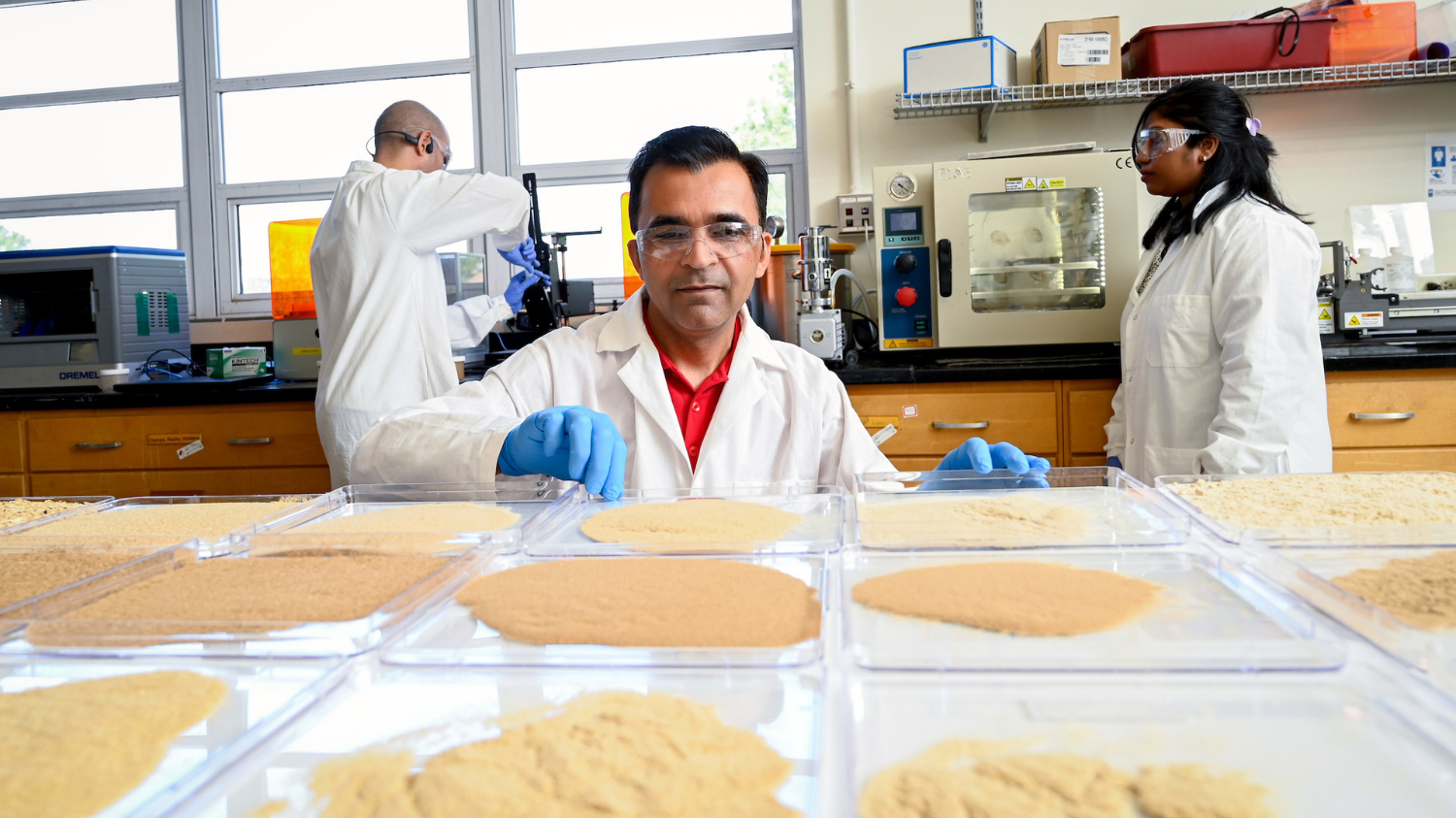Sustainable Research Roundup

NC State research continues to find sustainable solutions to global challenges. Check out this roundup of the latest research to improve our world.
Researchers from the Department of Forest Biomaterials have discovered how to convert sawdust powder into packaging to avoid standard oil-based products like styrofoam. These new products could potentially be made from the leftover sawdust normally burned at sawmills, creating several zero waste opportunities in multiple industries.
NC State Parks, Recreation and Tourism Management professors recently published a paper in the North Carolina Medical Journal citing the health benefits of parks and green spaces to individuals and communities. Enhancing youth development, fostering social cohesion, and reducing stress are just some of the health benefits found in those who access these areas.
Researchers from the College of Natural Resources and the Wilson College of Textiles have developed a new process to produce clothing that resembles the iridescent hues found in nature, such as bird feathers and fish scales, using nanoscopic particles extracted from wood. This process could ultimately reduce dye pollution from the fashion industry.
Organic farmers may soon be utilizing a textile “Plant Armor” to protect their plants against insects and improve plant growth. Researchers from the Wilson College of Textiles and the Department of Forest Biomaterials have developed a textile crop cover that creates a maze for insects to navigate, limiting insects’ access to plants but still allowing plants to access water and air for growth.
Researchers from the College of Sciences have sampled pine needles from 1961 to present-day in order to provide a snapshot of polyfluoroalkyl substances (PFAS) in central and eastern North Carolina. Their results trace real-time changes in PFAS contamination across the state.
Wilson College of Textiles students are studying whether enzymes can help breakdown fabrics in order to make a nutrient-rich compost. Their efforts could help reduce the 11 million metric tons of textile waste that are sent to the landfill each year in the United States.
Read more extraordinary research in Results, the research and innovation magazine of NC State.